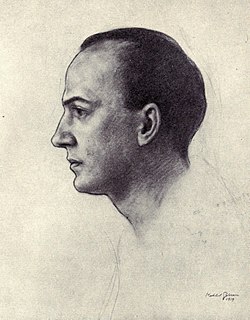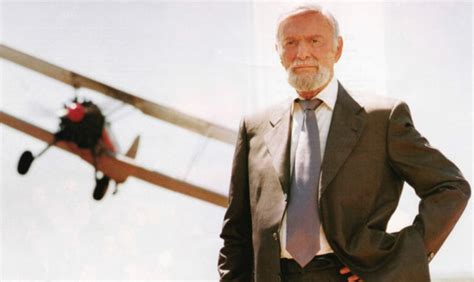A Quote by J. Robert Oppenheimer
No man should escape our universities without knowing how little he knows.
Related Quotes
No grand inquisitor has in readiness such terrible tortures as has anxiety and no spy knows how to attack more artfully the man he suspects, choosing the instant when he is weakest; nor knows how to lay traps where he will be caught and ensnared as anxiety knows how, and no sharp-witted judge knows how to interrogate, to examine the accused, as anxiety does, which never lets him escape.
History is for human self-knowledge. Knowing yourself means knowing, first, what it is to be a person; secondly, knowing what it is to be the kind of person you are; and thirdly, knowing what it is to be the person you are and nobody else is. Knowing yourself means knowing what you can do; and since nobody knows what they can do until they try, the only clue to what man can do is what man has done. The value of history, then, is that it teaches us what man has done and thus what man is.
There are four types of men in this world: 1. The man who knows, and knows that he knows; he is wise, so consult him. 2. The man who knows, but doesn't know that he knows; help him not forget what he knows. 3. The man who knows not, and knows that he knows not; teach him. 4. Finally, there is the man who knows not but pretends that he knows; he is a fool, so avoid him.
To be fond of learning is to draw close to wisdom. To practice with vigor is to draw close to benevolence. To know the sense of shame is to draw close to courage. He who knows these three things knows how to cultivate his own character. Knowing how to cultivate his own character, he knows how to govern other men. Knowing how to govern other men, he knows how to govern the world, its states, and its families.
You have to understand that people feel threatened by a writer. It's very curious. He knows something they don't know. He knows how to write, and that's a subtle, disturbing quality he has. Some directors without even knowing it, resent the writer in the same way Bob Hope might resent the fact he ain't funny without twelve guys writing the jokes. The director knows the script he is carrying around on the set every day was written by someone, and that's just not something that all directors easily digest.
Man... knows only when he is satisfied and when he suffers, and only his sufferings and his satisfactions instruct him concerning himself, teach him what to seek and what to avoid. For the rest, man is a confused creature; he knows not whence he comes or whither he goes, he knows little of the world, and above all, he knows little of himself.





































